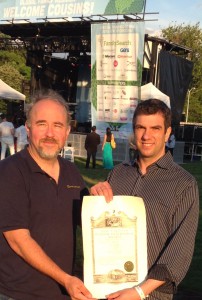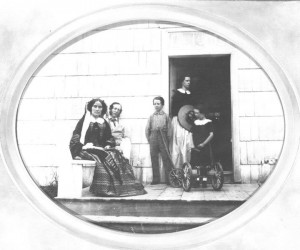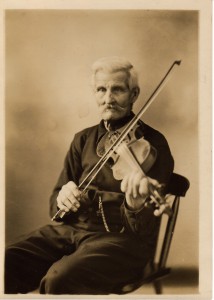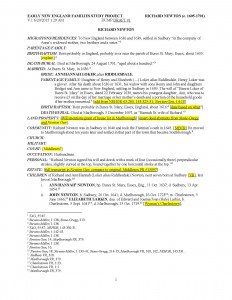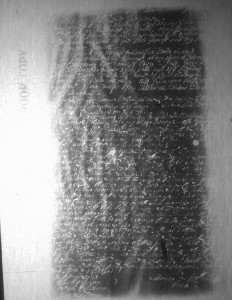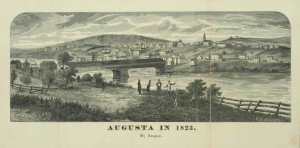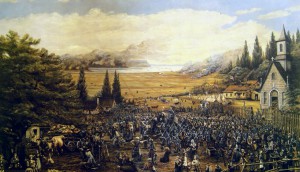 Continuing the series on “Collecting published accounts” that began here and continued here and here:
Continuing the series on “Collecting published accounts” that began here and continued here and here:
The next large group of records that I want to check is the published Massachusetts Bay Colony records (MBCR). I have downloaded the entire set on my computer and am creating my own hard copy as I work on each sketch. This takes paper and ink, but it eliminates having to find a place to keep the huge large-volume set in the house or to repeatedly pull up the digital version if I already have a page printed. I am collecting similar copies of other published sources (or at least of their indexes) that have a high density of the names I need. Continue reading Collecting published accounts: Part Four
